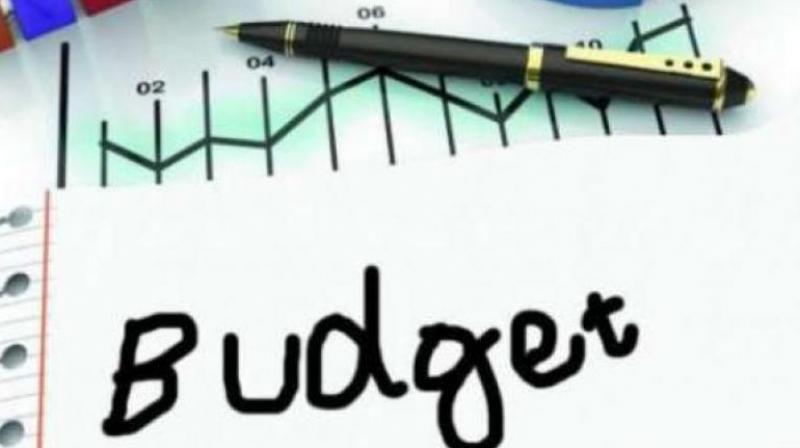Union Budget 2019: India-made electronics cheaper
Customs duty on marble slabs has been hiked to 40 % up from 20%.

New Delhi: The common man will burn a hole in his pocket as a large number of daily-use items including petrol, diesel, gold, silver, stainless steel, cigarettes, fully-imported cars and split air conditioners (ACs), among others, will become more expensive due to a hike in duty and taxes as proposed by finance minister Nirmala Sitharaman in the 2019-20 Budget.
However, at the same time, the common man has also reason to cheer as items like electric vehicle components, camera module and mobile phone chargers and set-top boxes, among a few items, will become cheaper.
“Make in India is a cherished goal. In order to provide domestic industry a level-playing field, basic customs duty is being increased on items such as cashew kernels, PVC, vinyl flooring, tiles, metal fittings, mountings for furniture, and auto parts and so on,” Ms Sithara-man said in her speech.
Like gold and silver, stainless steel products will be dearer too as the government also proposed to increase customs duty on stainless steel products by 2.5 per cent to 7.5 per cent as against five per cent currently. Similarly, the duty on base metal fittings, mountings and similar articles suitable for furniture, doors, staircases, windows, blinds, hinge for automobiles have also been increased to 15 per cent from the current 10 per cent.
She said exemptions from customs duty on certain electronic items that are now being made in India are being withdrawn. “Further, end use based exemptions on palm stearin, fatty oils, and exemptions to various kinds of papers are also being withdrawn. To encourage the domestic publishing and printing industry, a five per cent customs duty is being imposed on imported books,” she added.
On the customs front, Ms Sitharaman said the Budget proposals are driven with the objectives of securing India’s borders, achieving higher domestic value-addition through the Make-in-India programme, reducing import dependence, protection to the MSME sector, promoting clean energy, curbing non-essential imports and correcting inversions. She has proposed to increase special additional excise duty and road and infrastructure cess each by Re 1 a litre on petrol and diesel. “Crude prices have softened from their highs. This gives me the room to review excise duty and cess on petrol and diesel,” she added. The government also proposed to increase customs duty on gold and other precious metals from 10 per cent to 12.5 per cent, making the products dearer. “Tobacco products and crude oil attract national calamity and contingent duty. In certain cases, this levy has been contested on the ground that there is no basic excise duty on these items. To address this issue, a nominal basic excise duty is being imposed,” sh
e added.
She has levied duty on tobacco products, bidis and cigarettes, depending on the length and type from nil to 10 paise per thousand to `10 per thousand. She has also levied excise duty on hookah, chewing tobacco, jarda scented tobacco, smoking cigarette mixtures and other tobacco products from 0.5-1 per cent.
Customs duty on completely built units of vehicles or fully-imported cars will now attract duty of 30 per cent from 25 per cent earlier. Customs duty on auto parts, including oil and petrol filters for engines horns, glass mirrors and locks, have gone up by 2.5-5 per cent.
Customs duty on marble slabs have gone up from 20 per cent earlier to 40 per cent. Indoor and outdoor units of split air conditioners will now attract customs duty of 20 per cent against 10 per cent earlier. Customs duty on ceramic roofing tiles and ceramic flags and pavings, hearth or wall tiles etc have been hiked to 15 per cent from 10 per cent earlier. The finance minister has raised customs duty on chargers/power adapters of CCTV cameras/ IP cameras, loudspeaker, optical fibre to 15 per cent. Customs duty on digital video recorder (DVR) and network video recorder (NVR) and CCTV camera and IP camera has been increased by five per cent to 20 per cent. To further incentivise e-mobility, she said that customs duty is also being exempted on capital goods required for manufacture of specified electronic goods such as camera module and chargers of mobile phones and set-top boxes, which will make the products cheaper. Import of defence equipment, not manufactured in India, is being exempted from basic customs duty. “Defence has an immediate requirement of modernisation and upgradation. This is a national priority. For this purpose, the import of defence equipment that are not being manufactured in India are being exempted from basic customs duty,” she said.

